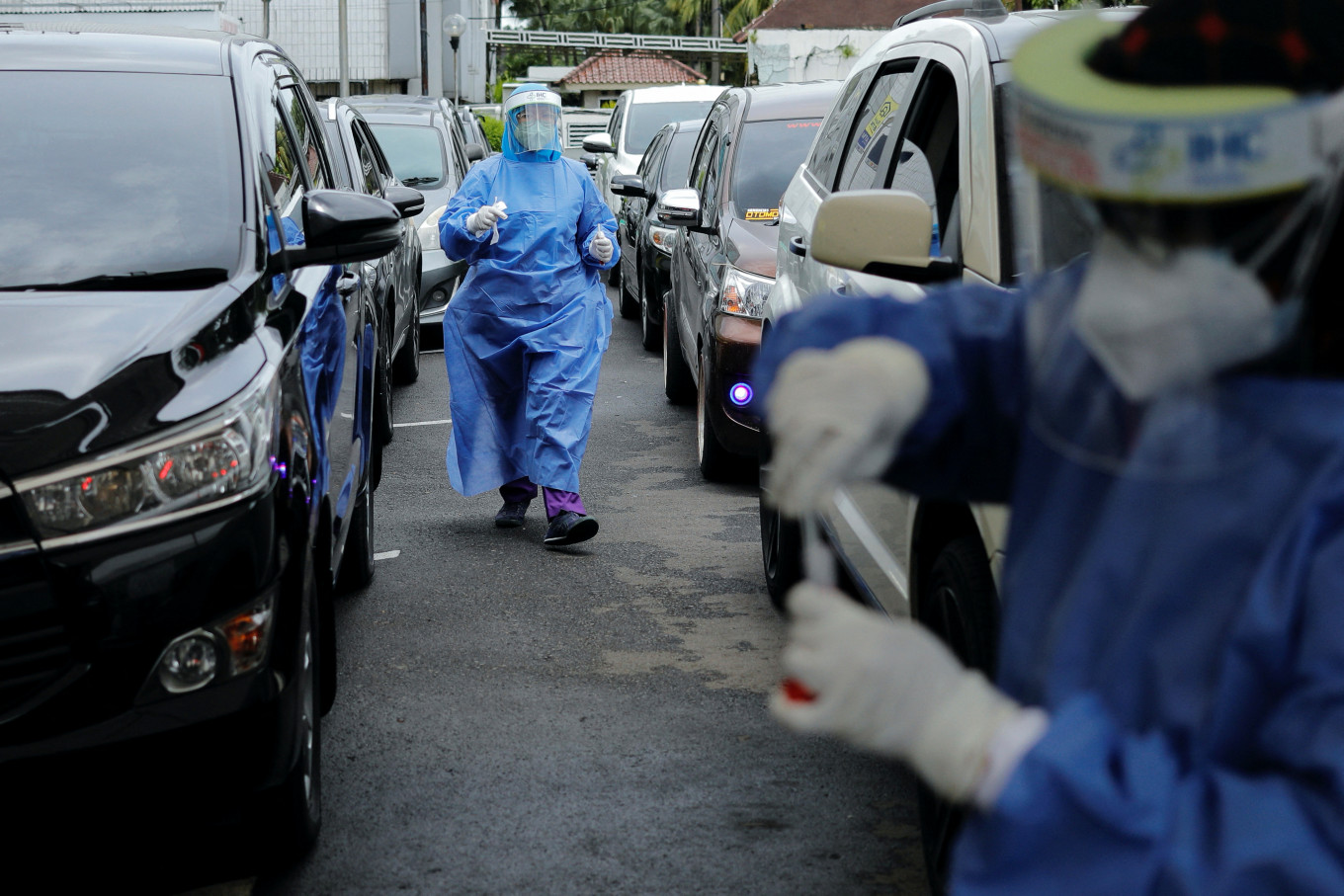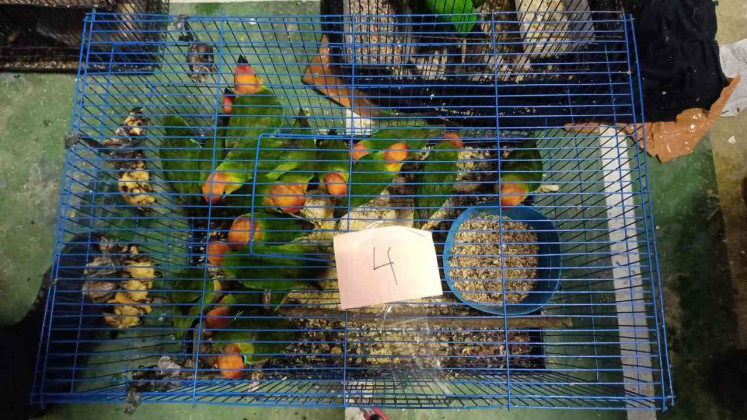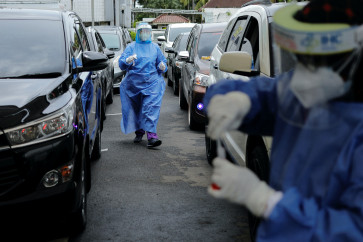Popular Reads
Top Results
Can't find what you're looking for?
View all search resultsPopular Reads
Top Results
Can't find what you're looking for?
View all search resultsGovt still cautious on COVID-19 spike, maintains curbs in Java, Bali
Change text size
Gift Premium Articles
to Anyone
W
hile recent epidemiological data suggest that COVID-19 transmission has begun to slow down in some areas of the country, the government has decided to maintain stringent curbs, as experts contend that the jury is still out on whether or not the Omicron-fueled third wave of infections has passed its peak.
Monday saw some 34,000 new COVID-19 cases -- the lowest daily figure for the past two weeks and almost half the record-breaking 64,000 cases reported on Feb. 16. On Tuesday, nearly 57,500 new cases were reported.
Despite this, Coordinating Maritime Affairs and Investment Minister Luhut Binsar Pandjaitan, who is in charge of the government’s COVID-19 response in Java and Bali, said on Monday that it would take time before restrictions could be eased.
The government extended on Monday level 3 public activity restrictions (PPKM), the second-strictest curbs in the four-tiered system, in the densely populated urban agglomerations of Greater Jakarta, Greater Bandung in West Java, Greater Surabaya and Greater Malang in East Java, and across the provinces of Bali and Yogyakarta for another week.
Greater Semarang and Greater Surakarta in Central Java are now also included on the list.
“The increase in the level [of curbs] in each of these areas was due to increasing hospitalizations,” Luhut told a press briefing on Monday.
He said the pandemic situation was under control and the public should not panic.


















